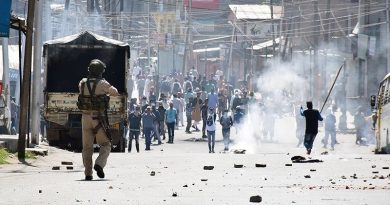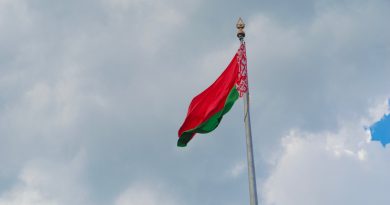Mozambique’s Presidential Election is Drawing Concern with Vote Fraud
Elizabeth Denton
Staff Writer
On October 9, Mozambique held elections for the president, Parliament, and provincial governors. With concerns over the economy and security looming over the election and reports of vote fraud from candidates, anticipation for the presidential winner is growing around the nation and region.
The Associated Press reports the four presidential candidates are Daniel Chapo, a member of the current ruling party, Venancio Mondlane, an independent, Ossufo Momade of the RENAMO party, and Lutero Simango of the Mozambique Democratic Movement party. Chapo is favored to succeed current President Filipe Nyusi, a member of the same party, who has served the maximum of two terms. Chapo emerged as the surprise winner of an internal vote in May. His strongest challenge could come from Mondlane, who has struck a chord with young people who are disaffected with unemployment and government corruption.
Chapo is a member of the Front for the Liberation of Mozambique(FRELIMO) which has been in power for 49 years. According to the Associated Press, FRELIMO is a leftist liberation movement that established a one-party state after the nation’s independence from Portugal. The FRELIMO and RENAMO groups have a bloody history stemming from civil war after a 1992 peace deal. The fragile peace was broken in 2013 and then reinstated with another deal in 2019.
According to Barron’s, any future government will face difficulties with the nation’s poverty levels and natural disasters that plague the nation. Mozambique hoped for an economic boost with the discovery of gas deposits in 2010, but Jihadist violence in the area has squashed any hope of developing extraction projects.
Security has also been a difficult issue facing Mozambique. In the past five years, the Cabo Delgado province has experienced the evolution of a local insurgency. The Ahlu Sunnah wa Jamaah (ASWJ) has grown into an Islamic State affiliate, often referred to as Islamic State-Mozambique, according to the Center for Strategic and International Studies. The group has grown in members, capability, and geographic presence, causing Cabo Delgado’s residents severe economic disruption, infrastructure destruction, and displacement of over one million people. Since 2021, nearly half of those displaced have returned, accompanied by efforts to rebuild areas that have been under insurgent control. However, the ASWJ has shared public broadcasts condemning the FRELIMO government for profiting at the expense of the poor Muslim population, offering their vision of a Sharia-based government as an alternative. Overall, security and the economy have been highlighted as major issues in the 2024 election.
Multiple accusations of election fraud have been made during the election. Reuters reports the Internal Republican Institute, a U.S.-based monitoring group, found instances of vote buying, intimidation, inflated voter rolls in FRELIMO strongholds, limited transparency in result collation, and many other issues in the election. Election observers said the poll did not meet international standards for democratic elections. The main accusations of election fraud came from Mondlane. The election was marred by fraud and manipulation by FRELIMO reports The Associated Press. Mondlane held a march in the northern city of Nampula and called on his supporters to hold a national strike in protest of the fraud. The march was broken up by police on the grounds that Mondlane did not keep to an agreed route for the march, and he was encouraging his supporters to confront officers.
Election results are reported to be released in mid-October.
Image courtesy of Getty Images


